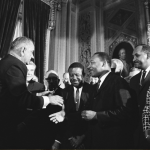
Image: Pixabay
A lot of progressive Christians, those of us who grew up “on fire for Jesus” of the evangelical vein, are today drawn to the mystic, contemplative writings of the popular Catholic priest, author and speaker, Richard Rohr. Tired of culture wars, petty infighting, and the exclusionary nature of evangelicalism, many of us revel in the wise teachings of Rohr, who spends the bulk of his energies teaching compassionately on the larger, deeper questions of human life. We crave the gritty substance of Rohr’s spirituality instead of empty doctrinal rhetoric.
One of Richard Rohr’s recent books, Falling Upward, is a beautiful rendering of the spirituality of our second half of life. I find its biggest value in giving permission to those of us who are following our curiosities to embrace paradoxes, pushing beyond binaries and holding in tension complexities. I find his voice authoritative in the most gentle manner, and the book is an excellent read for those who are continuing their quest for integrity in their journey.
However, he includes in the beginning of his book a short section on Christian parenting that I find problematic. As his book is not addressed to parents specifically, I would not have found it particularly troublesome. But he is an influential voice in many of my progressive Christian friends who are trying to raise their children differently from the conservative religiosity of our past. I want to attempt to add some nuance and engage with some of his parenting ideas I find too simplistic and potentially damaging.
To summarize Rohr’s ideas, in his third chapter titled, The First Half of Life, he asserts that we cannot properly move on to our second half of life, which consists of holding paradoxes in tension, bucking authority and breaking rules, expanding our minds to embrace the inevitable contradictions of life’s realities, unless we establish strong containers to house a strong ego.
“You ironically need a very strong ego structure to let go of your ego. You need to struggle with the rules more than a bit before you throw them out.”
According to Rohr, the way we construct this container in the first half of life is “through impulse controls; traditions; group symbols; family loyalties; basic respect for authority, civil and church laws; and a sense of the goodness, value, and special importance of your country, ethnicity, and religion.”
He cites two metaphors to illustrate his point. First, the ancient Greek mathematician Archimedes, who says, “you must have both a lever and a place to stand before you can move the world,” as an example of giving children concrete values as an anchor in the beginning of their lives. Second, he refers to Cesar Milan, the popular “dog whisperer” who says dogs are happier and at rest when they are leashed and know their clear boundaries.
It is easier, Rohr says, “to begin rather conservative or traditional,” when it comes to raising our children. He continues hammering his point by referring to how ten year olds fiercely guard the rules of their game, “We cannot flourish early in life inside a totally open field. Children need a good degree of order, predictability, and coherence to grow up well.” Essentially, he is saying unless we enforce strict rules, or what he calls, “limit situations,” then our children will grow up coddled. He ends this section of the chapter by observing “much of the workforce and the student body of America” exhibit this lack of discipline, whose “basic egocentricity has never been challenged or undercut.”
In just a few short pages, Rohr has managed to sound not much different than James Dobson. Comparing children to dogs who need to be leashed? Generalizing and shaming young people for lacking discipline? I find his assessment harsh and parenting implications heavy-handed. For those of us trying to raise our children differently from the fundamentalism which inflicted so many wounds in our own souls, this doesn’t present an alternative way but introduces confusion and fear that perhaps the pain we experienced is a rite of passage that we must subject our children to before they can evolve into better theology. How can we, who have undergone grueling inner work to break free of dogmatic shackles, want to place that back on our children?
Here’s what I do agree with Rohr: children need stability and security and a strong sense of identity. What I disagree with his insistence that this “container” comes through a unilateral system which we impose upon our kids, whether it is religious, political, or cultural. I think he underestimates the agency of even very young kids to forge their own particular identity and navigate between multiple spheres of influence in their lives.
From birth, our babies are already receiving stimuli and learning from multiple sources. I think about my bilingual children, how they were able to switch seamlessly between Chinese and English, even as toddlers. They are learning values from their own conscience, their parents, their siblings, their other caretakers, the media they consume, their teachers and schoolmates. And not only are they picking up these influences, they are also agents of change in the spaces they occupy. Think about how much our babies change us as much as we shape them.
They forge their strengthening identity not from us acting as authority figures demanding boundaries and enforcing “limit situations,” they can do so by learning vocabulary and tools to navigate the plurality of influences in their lives and figure out the roles they play in their own story. A strong identity is one that connects well with intersecting spheres.
As a Christian, I think of sharing my own faith with my children as one of the tools I can give them. I can teach them a language of prayer, take them to church and read the Bible together. But they are themselves spiritual agents, who can draw from my tradition as well as other influences. I’m not afraid to expose them to other religions and faiths, just as I am not afraid of secular influences in their lives. Because ultimately, I believe I am giving them critical skills of engaging meaningfully in a world with many conflicting and overlapping value systems, thereby giving them the best chance of arriving at their own convictions. This is not raising children in “chaos without laws” as Rohr says in his chapter, it is giving them the freedom and agency to navigate multiple influences while having the privilege of being a part of one major influence.
Rohr says there is a generation of people who aren’t even fit to be parents because they have been so poorly parented themselves with no inner discipline. And yet, some of the most immature, fearful adults I know are ones who are raised in the strict rigidity of fundamentalism, who even well into their second half of life, cannot function outside of the rules given them in their childhood. They have to be told exactly what to do, who to spend time with, what books to read, which voices to listen to – as adults! The specificity of prescriptive Christian living literature is alarming.
I suspect if I had an opportunity to actually speak with Richard Rohr, he and I would agree on the level of tender care and freedom we must extend our children in regards to their spirituality. I hope I did not create straw men arguments or misrepresent his ideas, but interacted fairly with the material in his book. I appreciate Rohr for giving me and many other adults the permission to move beyond dualistic thinking – I just wish he would extend the same liberation to small children.
















